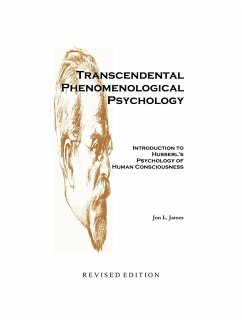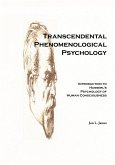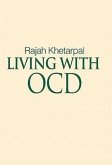From the Preface to the Revised Edition: Since its publication in 2007, Transcendental Phenomenological Psychology has been sold on every continent (except Antarctica), and is in the collections of research libraries in North America, Europe, and Asia. Even so, its presentation to the academic community rightly provoked many comments, corrections, suggestions, and criticisms. Such input, while mostly welcome, provided the impetus to publish a revised edition. A phenomenological explanation of human consciousness has long been sought in regions of psychology since the discipline was first carved out of philosophical concepts and theories about the human condition. In its earliest years, Western psychology was faced with two possible directions for this explanation: an empirical naturalistic approach along with physics and biology, or a non-empirical eidetic approach along with logic and mathematics. Edmund Husserl took up the latter. His phenomenological tradition of inquiry successfully spanned nearly forty years until suddenly stopped and largely suppressed during the Second World War. This book recovers Husserl's revolutionary approach toward the human sciences, just as it was developed, and just as it is presented for further study. Here, the author systematically gathers what Husserl calls the "leading clues" in the phenomenological method proper for a psychology of affective inner experience, and then for the first time applies Husserl's own methodology for introducing a phenomenological psychology in the transcendental register of human consciousness. Unlike contemporary phenomenological psychology in the existential register, transcendental phenomenological psychology is presented as an eidetic non-empirical "act psychology" in Husserl's mature genetic phenomenology. This novel approach takes in the full range of solipsistic and transcendental subjectivity in Husserl's theories of human consciousness, and follows Husserl's lead in presenting phenomenological psychology as an "applied geometry" of intentional experience within a step-wise theory of inquiry. This book is unique in human science today, not only in its presentation of the development and applications of Husserl's key concepts for the discipline of psychology, but also for introducing a psychology that could be intuitively grasped as self-evidently valid wherever one's interest might lie.
Hinweis: Dieser Artikel kann nur an eine deutsche Lieferadresse ausgeliefert werden.
Hinweis: Dieser Artikel kann nur an eine deutsche Lieferadresse ausgeliefert werden.








